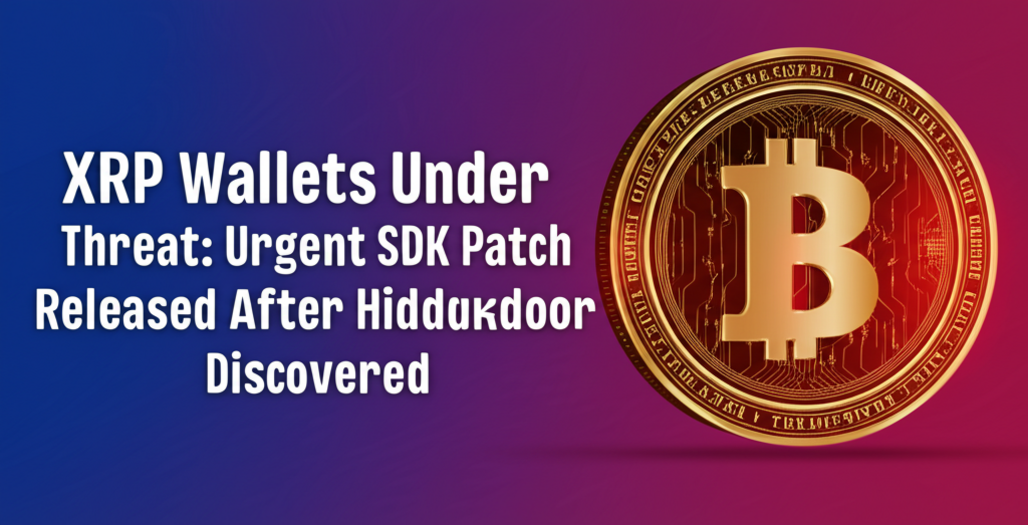XRP Wallets Under Threat: Urgent SDK Patch Released After Hidden Backdoor Discovered

The foundation supporting the XRP Ledger acted quickly to neutralize a critical security flaw in its official JavaScript SDK, which posed a direct threat to user funds by potentially exposing private keys.
On April 22, an updated version of the crucial XRP Ledger npm package was pushed out, removing malicious code and securing the library for developers utilizing the network. This response followed swiftly after warnings were issued.
The xrpl npm package serves as the standard JavaScript/TypeScript toolkit for interacting with the XRP Ledger. It enables developers to integrate wallet management, transaction processing, and other decentralized functionalities into their applications.
The alarm was raised just hours earlier when blockchain security specialists at Aikido identified suspicious code within five newly published versions of the library on the npm registry.
An Aikido analysis revealed that malicious actors had uploaded compromised package versions, beginning with 4.2.1. A key indicator was the mismatch between these npm versions and the official code releases available on GitHub, an anomaly detected by automated security monitoring.
Crucially, these rogue packages contained a hidden backdoor designed specifically to steal cryptocurrency private keys, granting attackers unauthorized access to user wallets.
The embedded malicious script activated whenever a developer used the compromised SDK to create a new wallet. It secretly transmitted the private keys to an attacker-controlled domain (0x9c.xyz), effectively compromising the newly created wallet.
This type of vulnerability, known as a supply chain attack, was described by Aikido as potentially catastrophic, representing a severe threat vector within the crypto space. [Internal Link: Learn More About Blockchain Security Threats]
Given the xrpl package’s popularity, boasting over 140,000 weekly downloads and integration into countless platforms, the backdoor had the potential for widespread, silent compromise across the XRP ecosystem.
Evidence suggests the attackers iteratively refined their malicious code. Initial compromised versions (4.2.1, 4.2.2) confined changes to built JavaScript files, possibly to evade standard code reviews. Subsequent versions (4.2.3, 4.2.4) embedded the malicious payload directly into the TypeScript source, making it more persistent.
Security experts strongly advised users to cease using the affected versions immediately. They stressed the importance of rotating any private keys or seed phrases potentially exposed by these compromised packages. Furthermore, checking network logs for any communication attempts to the malicious domain 0x9c.xyz was recommended, alongside upgrading to the secure versions 4.2.5 or 2.14.3.
The XRP Ledger Foundation later confirmed the removal of the compromised packages from npm. They also reassured the community that major ecosystem projects like XRPScan, First Ledger, and Gen3 Games remained unaffected by this incident.
Despite the security scare, the market reaction appeared limited. At the time of reporting, the price of XRP showed resilience, increasing by 7.4% over the preceding 24 hours to trade at $2.24. [Internal Link: Understanding XRP Price Movements]
This event follows a separate operational issue earlier in the year, where the XRP Ledger experienced a temporary halt in transaction validation on February 5, though no data loss occurred during that disruption.
